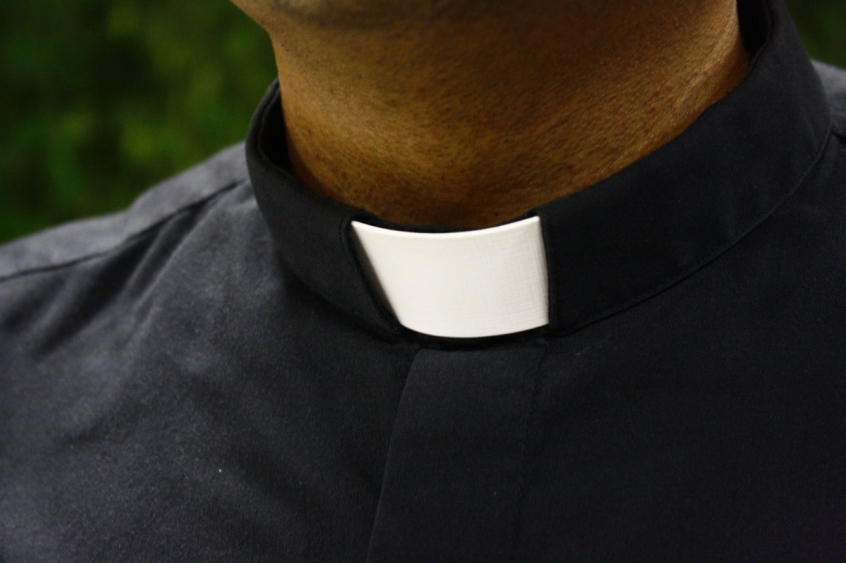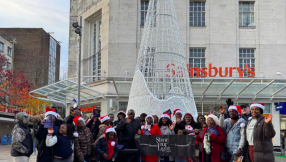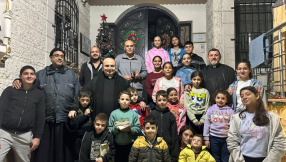The Unite trade union has seen a surge in religious ministers joining its faith workers division in the past year, amid claims of increased stress among clergy.
Almost 1,500, priests, rabbis and a handful of imams, are members, in a rise of almost 200, or 16 per cent, on the year before, according to The Times.

The rise is taking place despite the fact that Church of England priests have no rights under employment law. They are 'office-holders' as opposed to employees and cannot have grievances heard by employment tribunals.
The Rev Peter Hobson, head of Church of England Clergy Advocates (CECA) within Unite, told The Times that priests were unlikely to walk out on strike, but did want better protection.
The group liaises with the General Synod, which debated clergy wellbeing and stress this year. During that debate Justin Welby, the Archbishop of Canterbury, said the most stressful part of his career to date had been the 'isolation' of being a parish priest.
He said: 'The hardest work I've ever done and the most stressful was as a parish priest – mainly because it was isolated, insatiably demanding and I was on the whole working without...close colleagues, particularly in the first few years.'
Christian Today spoke to a Baptist minister who has felt the benefits of joining Unite three years ago. Simon Hall of the Chapel Allerton Baptist Church in Leeds explained: 'My initial reason for joining was really to support the union movement. I didn't actually ever think I would need a union. It was primarily a sense of feeling the union movement needed Christians to be involved in it, supporting workers in collective bargaining. But since that time I got into a situation where I may have needed the union's support – a complaint was made against me and I realised it could be very helpful.
'It is about having support if you are in a sticky situation and obviously you hope and trust that you are not going to be in that situation where you need help, with a complaint against you or you against your employer. But it is helpful especially when things can get very expensive to know that you have a union on your side. But more broadly, I believe in unions, in people getting together, because the power of big businesses is always going to be there but if people get together they can speak more powerfully to power.'
Hobson said that ministers were also seeking counselling. 'A lot of calls to our helpline, when it boils down to it, are for some guidance and support,' he said. 'If they have no one else, we often provide it.'
According to The Times, most members of Unite's faithworker division – 54 per cent – are Church of England, while 10 per cent are Methodists, but rabbis, who are employees of their synagogues, have also started joining.
Rabbi Ariel Abel, who sits on the division's executive, told the newspaper: 'Sometimes people who are very well qualified in their professions leave their brains and morals behind on their work desk, and return to their congregations, and think that their rabbi or priest is a punchbag.'
Hobson said that many priests did not feel that the clergy discipline measure, the church's system for complaints and allegations, was always independent or fair. He said: 'It's fair to say it doesn't always work as it should.'
He added that anxiety over abuse claims and an increased focus on safeguarding was also a factor. 'Clergy, like anyone else, might be thinking, "Are there things I may have done, perhaps totally inadvertently, in the past where complaints will be made, and how will I fare, and will there be someone to support me?"'
A Church of England spokesperson said: 'We work closely with CECA and meet regularly with their representatives, both formally and informally, and we value the insights they bring.
'We take the well-being of clergy very seriously indeed and our work includes long term research by the Ministry Division of the Church of England exploring what helps clergy to flourish in ordained ministry. A panel has also been established to begin drafting a Covenant for Clergy Well Being following [the] debate this summer at the General Synod.'













